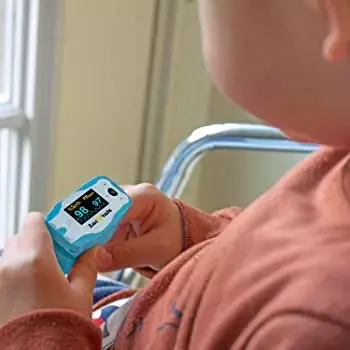- Home
- Medical news & Guidelines
- Anesthesiology
- Cardiology and CTVS
- Critical Care
- Dentistry
- Dermatology
- Diabetes and Endocrinology
- ENT
- Gastroenterology
- Medicine
- Nephrology
- Neurology
- Obstretics-Gynaecology
- Oncology
- Ophthalmology
- Orthopaedics
- Pediatrics-Neonatology
- Psychiatry
- Pulmonology
- Radiology
- Surgery
- Urology
- Laboratory Medicine
- Diet
- Nursing
- Paramedical
- Physiotherapy
- Health news
- Fact Check
- Bone Health Fact Check
- Brain Health Fact Check
- Cancer Related Fact Check
- Child Care Fact Check
- Dental and oral health fact check
- Diabetes and metabolic health fact check
- Diet and Nutrition Fact Check
- Eye and ENT Care Fact Check
- Fitness fact check
- Gut health fact check
- Heart health fact check
- Kidney health fact check
- Medical education fact check
- Men's health fact check
- Respiratory fact check
- Skin and hair care fact check
- Vaccine and Immunization fact check
- Women's health fact check
- AYUSH
- State News
- Andaman and Nicobar Islands
- Andhra Pradesh
- Arunachal Pradesh
- Assam
- Bihar
- Chandigarh
- Chattisgarh
- Dadra and Nagar Haveli
- Daman and Diu
- Delhi
- Goa
- Gujarat
- Haryana
- Himachal Pradesh
- Jammu & Kashmir
- Jharkhand
- Karnataka
- Kerala
- Ladakh
- Lakshadweep
- Madhya Pradesh
- Maharashtra
- Manipur
- Meghalaya
- Mizoram
- Nagaland
- Odisha
- Puducherry
- Punjab
- Rajasthan
- Sikkim
- Tamil Nadu
- Telangana
- Tripura
- Uttar Pradesh
- Uttrakhand
- West Bengal
- Medical Education
- Industry
Intermittent Pulse Oximetry preferable to Continuous Pulse Oximetry in kids with bronchiolitis: Study

Bronchiolitis is the most common acute lower respiratory tract infection in infants. In hospital practice, pulse oximetry for identifying hypoxia is considered the fifth vital sign. However, the use of continuous or intermittent pulse oximetry is still unclear. In a recent study, researchers have suggested in favour of the standard use of intermittent pulse oximetry in stable infants hospitalized with bronchiolitis. The study findings were published in the JAMA Pediatrics on March 01, 2021.
Experts and practitioners postulate that continuous measurement of oxygen saturation, results in greater detection of transient and false-positive desaturations, leading to unnecessary additional supplemental oxygen use, more interventions, prolonged hospital stays, and higher costs. However, the Choosing Wisely campaign recommends not to use continuous monitoring in infants with bronchiolitis but without hypoxia. There is a low level of evidence and substantial practice variation regarding the use of intermittent or continuous monitoring in infants hospitalized with bronchiolitis. Therefore, researchers of Canada conducted a study to compare the effect of intermittent vs continuous pulse oximetry on clinical outcomes.
It was a multicenter, pragmatic randomized clinical trial that included 229 infants of 4 weeks to 24 months of age who were hospitalized with bronchiolitis from November 1, 2016, to May 31, 2019, with or without supplemental oxygen after stabilization at community and children's hospitals in Ontario, Canada. Among 229 infants, researchers randomized 114 in the intermittent pulse oximetry group, and 115 in the continuous pulse oximetry group with an oxygen saturation target of 90% or higher. The major outcome assessed was the length of hospital stay from randomization to discharge. Researchers also evaluated the length of stay from inpatient unit admission to discharge and outcomes measured from randomization: medical interventions, safety (intensive care unit transfer and revisits), parent anxiety and workdays missed, and nursing satisfaction.
Key findings of the study were:
♦ Upon analysis, researchers found no significant differences between the intermittent and continuous groups in:
- The median length of stay from inpatient unit admission to discharge: 49.1 hours vs 46.0 hours,
- Frequencies or durations of hospital interventions, such as oxygen supplementation initiation: 4 of 114 (3.5%) vs 9 of 115 (7.8%) and the median duration of oxygen supplementation: 20.6 hours vs 21.4 hours.
♦ They also found no significant differences in the
- Frequencies of intensive care unit transfer: 1 of 114 vs 2 of 115 (2.7%);
- Readmission to hospital: 3 of 114 (2.6%) in the intermittent group vs 4 of 115 (3.5%) in the continuous group;
- Parent anxiety: mean (SD) parent anxiety score, 2.9 (0.9) in the intermittent group vs 2.8 (0.9) in the continuous group; or
- Parent workdays missed: median workdays missed, 1.5 vs 1.5days
♦ Additionally, they also found that nursing satisfaction with monitoring was significantly greater in the intermittent group: 8.6 (1.7) vs 7.1 (2.8) of 10 workdays with the mean difference of 1.5.
The authors concluded, "among infants hospitalized with stabilized bronchiolitis with and without hypoxia and managed using an oxygen saturation target of 90% or higher, clinical outcomes, including the length of hospital stay and safety, were similar with intermittent vs continuous pulse oximetry."
They further added, "Nursing satisfaction was greater with intermittent monitoring. Given that other important clinical practice considerations favour less intense monitoring, these findings support the standard use of intermittent pulse oximetry in stable infants hospitalized with bronchiolitis."
For further information:
https://jamanetwork.com/journals/jamapediatrics/fullarticle/2776775
Medical Dialogues Bureau consists of a team of passionate medical/scientific writers, led by doctors and healthcare researchers. Our team efforts to bring you updated and timely news about the important happenings of the medical and healthcare sector. Our editorial team can be reached at editorial@medicaldialogues.in.
Dr Kamal Kant Kohli-MBBS, DTCD- a chest specialist with more than 30 years of practice and a flair for writing clinical articles, Dr Kamal Kant Kohli joined Medical Dialogues as a Chief Editor of Medical News. Besides writing articles, as an editor, he proofreads and verifies all the medical content published on Medical Dialogues including those coming from journals, studies,medical conferences,guidelines etc. Email: drkohli@medicaldialogues.in. Contact no. 011-43720751


